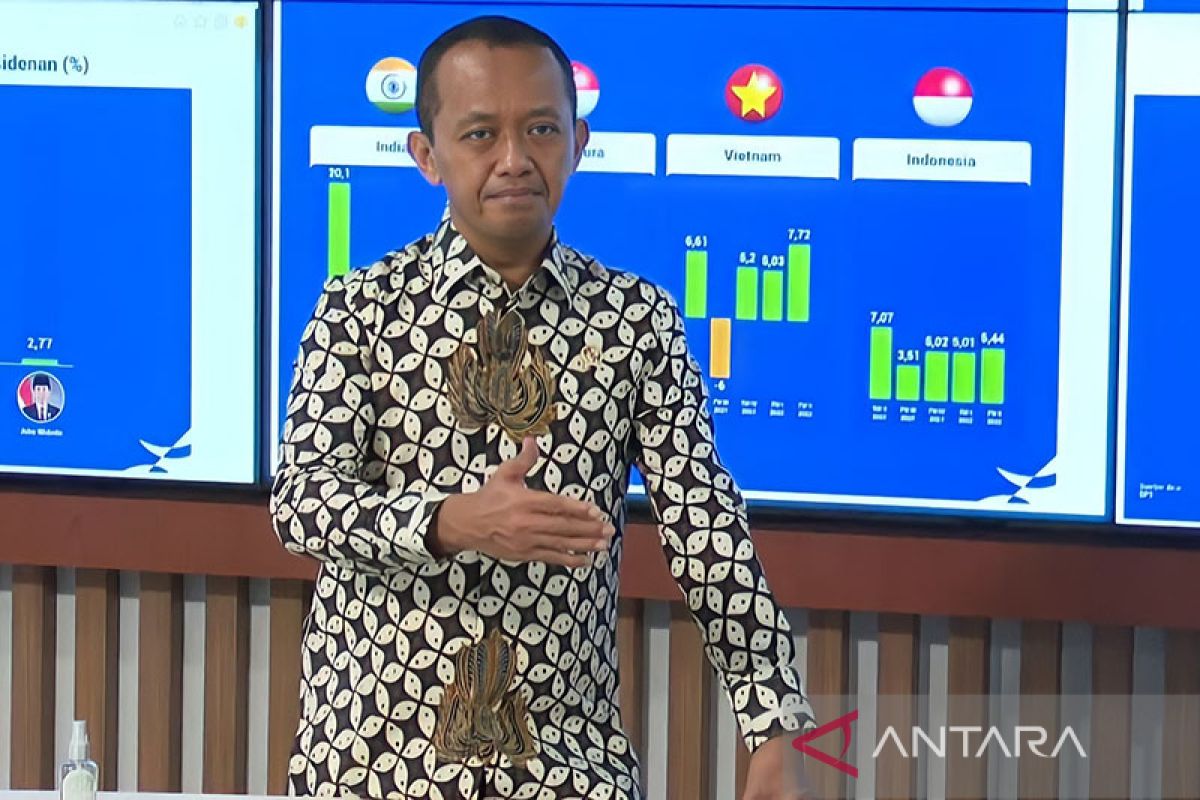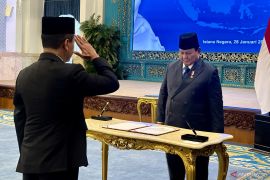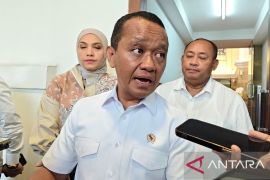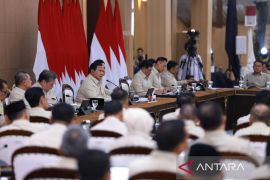"We are already on track. If we are able to maintain it, then economic growth will be even better. The government is here to encourage the business sector to create jobs," he said in a written statement released here on Tuesday.
According to Statistics Indonesia (BPS), Indonesia's economic growth in the second quarter of 2022 reached 5.44 percent year-on-year (yoy). Similarly, Indonesia's inflation in the second quarter was recorded at 4.35 percent.
The inflation rate has been under control for the past seven years under President Joko Widodo's administration, when compared to the previous post-reform administration, Lahadalia noted.
Average inflation in the era of B.J. Habibie was recorded at 2.00 percent, Abdurrahman Wahid 10.96 percent, Megawati Soekarnoputri 7.18 percent, Susilo Bambang Yudhoyono 7.52 percent, and Joko Widodo 2.77 percent.
Among the G20 countries, Australia has recorded an inflation of 5.1 percent, South Korea 6.0 percent, India 7.01 percent, Germany 7.6 percent, the United States 7.6 percent, England 9.1 percent, Turkey 78.6 percent, and Brazil 11.89 percent.
Thus, in comparison, Indonesia is in a more stable condition. Meanwhile, among ASEAN countries, Singapore has recorded an inflation of 6.68 percent, followed by Thailand (7.66 percent), Laos (23.6 percent), Myanmar (17.3 percent), Cambodia (7.2 percent), and the Philippines (6.1 percent).
Expenditure-wise, in the second quarter of 2022, household consumption grew 5.51 percent (yoy) and contributed 2.92 percent to economic growth.
Household consumption is closely related to people's purchasing power, which rises with income stability and job availability.
"The President has ordered that investment not only focus on high technology, but also labor-intensive investment to create jobs. Investment will increase, employment will also increase. So it's balanced," the minister informed.
In the second quarter of 2022, Indonesia's trade balance recorded a surplus of US$15.5 billion, with exports increasing by 19.7 percent.
Since the first quarter of 2020, Indonesia's trade balance has experienced a surplus, which has continued to increase till the second quarter of 2022. Lahadalia called it a positive impact of the downstreaming of natural resources, which is being promoted by the current government.
"Now our exports don't just rely on raw materials. Downstream is happening. The transformation ends up providing added value. We can already see the results," he added.
Furthermore, Lahdalia informed that the largest contribution to economic growth from industry sector was made by the manufacturing sector at 0.82 percent.
The processing industry included the basic metal, metal goods, non-machinery and equipment, as well as the food and beverage industry, which made a major contribution to investment realization in the second quarter of 2022.
The realization of investment in the basic metal, metal, and non-machine and equipment sectors was Rp48.2 trillion or 15.9 percent of the total realization of Rp302.2 trillion in the second quarter of 2022.
Meanwhile, investment realization in the food and beverage industry reached Rp22.4 trillion or 7.4 percent of the total.
Related news: Economy must grow 6% annually to achieve 2045 vision: ministry
Related news: Economic transformation helps Indonesia reach high-income nation goal
Related news: Tough times for national economy have ended: Minister
Translator: Ade Irma J, Mecca Yumna
Editor: Sri Haryati
Copyright © ANTARA 2022












